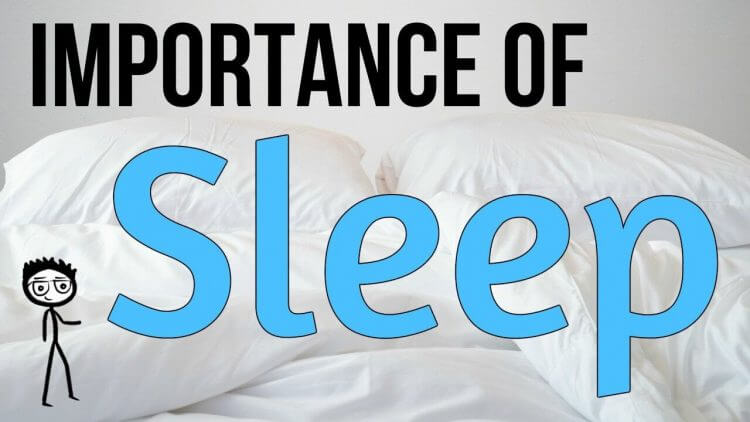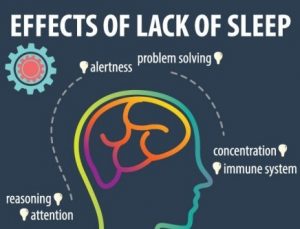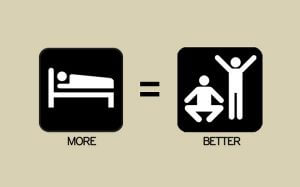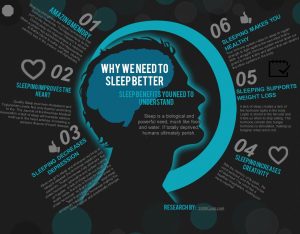
Importance of Sleep
If the average night’s sleep is eight hours (i.e. one-third of a day), one sleeps for one-third of one’s life. If you live, say, 75 years, that’s 25 years asleep, or 9,125 days.
Sleep is essential for a person’s health and wellbeing, yet millions of people do not get enough sleep, and many suffer from lack of sleep.
People are now sleeping less than they did in the past, and sleep quality has decreased as well.
As you drift off to sleep, your body begins its night-shift work:
- Healing damaged cells
- Boosting your immune system
- Recovering from the day’s activities
- Recharging your heart and cardiovascular system for the next day
Here’s What You’re Missing Out on if You Don’t Get Enough Sleep.
Good Sleep Can Maximize Athletic Performance
Less sleep duration has also been associated with poor exercise performance and functional limitation in elderly women.
Longer sleep has been shown to improve many aspects of athletic and physical performance.

Poor Sleepers Have a Greater Risk of Heart Disease and Stroke
We know that sleep quality and duration can have a major effect on many risk factors.
These are the factors believed to drive chronic diseases, including heart disease.
Sleeping less than 7-8 hours per night is linked to an increased risk of heart disease and stroke.

Poor Sleep Is Linked to Depression
Mental health issues, such as depression, are strongly linked to poor sleep quality and sleeping disorders.
It has been estimated that 90% of patients with depression complain about sleep quality. Poor sleep is even associated with increased risk of death by suicide.
Those with sleeping disorders, such as insomnia, also report significantly higher rates of depression than those without.
Poor sleeping patterns are strongly linked to depression, particularly for those with a sleeping disorder.
Good Sleep Can Improve Concentration and Productivity
Sleep is important for various aspects of brain function. This includes cognition, concentration, productivity, and performance.

All of these are negatively affected by sleep deprivation. A study on medical interns provides a good example.
Good sleep, on the other hand, has been shown to improve problem-solving skills and enhance memory performance of both children and adults. Good sleep can maximize problem-solving skills and enhance memory. Poor sleep has been shown to impair brain function.
To Improve Your Sleep Habits, It Also May Help To:
- Use the hour before bed for quiet time. Avoid strenuous exercise and bright artificial light, such as from a TV or computer screen. The light may signal the brain that it’s time to be awake.
- Avoid heavy and/or large meals within a couple hours of bedtime. (Having a light snack is okay.) Also, avoid alcoholic drinks before bed.
- Avoid nicotine (for example, cigarettes) and caffeine (including caffeinated soda, coffee, tea, and chocolate). Nicotine and caffeine are stimulants, and both substances can interfere with sleep. The effects of caffeine can last as long as 8 hours. So, a cup of coffee in the late afternoon can make it hard for you to fall asleep at night.
- Spend time outside every day (when possible) and be physically active.
- Keep your bedroom quiet, cool, and dark (a dim night light is fine if needed).
- Take a hot bath or use relaxation techniques before bed.





Leave a Reply